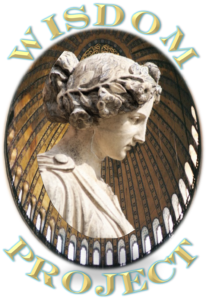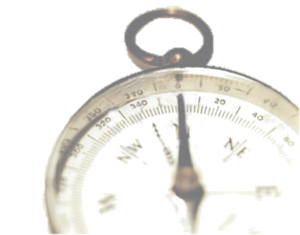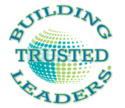
Purpose: Many senior citizens feel like they are missing something in their lives. Could it be real meaning and purpose? What if all the wisdom, insights, and great stories embedded in their minds and hearts don’t have to die with them, but are meant to be shared?
The Wisdom Project engages Seniors, enabling them to make a gift of their personal wisdom gained over six or more decades on this planet. What’s more, it’s done with others, building new relationships.
Gift of Wisdom: The Wisdom of the Ages is intended to be given to future generations, including grandchildren and unborn great grandchildren. And more — wisdom is the most important thing an older generation can transmit to younger people to preserve what’s worthwhile in our culture.
There are so many valuable insights to be shared from all of us on how to live our lives, how we think about our circumstances, and how to succeed in the face of adversity. You will have fun, make new friends and have a legacy to pass on to your family, friends and many others.
Value Created: For many seniors, their personal value is often ambiguous or nebulous. Many seniors “retire” (from French, which means withdrawal, to pull back, to quit, to check out), leaving their “golden years” without meaning or purpose – just space that needs to be filled with “busyness” to fill the lonely time before one dies. Just the process of creating a wisdom gift is inspiring and enlightening. Research shows that seniors who have meaning and purpose in their lives live significantly longer — up to 10-15% longer.
Here’s some Feedback from a Senior Citizen who started a Wisdom Project
Dear Robert,I’m so Happy! I wanted to share with you — I’m on a roll!It’s been just a mere 36 hours since we had dinner and watched Marlene Dietrich sing “Lilly Marlene.”The whole idea of giving my ideas, stories, and wisdom to my great grandchildren is almost enchanting.I haven’t felt like this in a long time. It’s put me in a whole new frame of mind.
You really lit my candle(s).
I’ve written over 20 pages since I saw you Wednesday night.My inspired self has come back! Pretty good for an 85 year old gal.Thank you from the bottom of my heart. And God thanks you too!
Lorraine
You can become a part of the Wisdom Project. Allow your gift of wisdom to live in on in your loved ones and others.
Outcomes: Various groups of seniors have the option of choosing what they want to produce as a result.
These are some of the options:
- Book: a hard copy book (i.e. hardback or paperback plus digital copy) of 75-250 pages, filled with wisdom. The advantage of a book is that personal publishing is easy and there is a hard copy to be handed down to future generations.
- Videos: individuals may want to deliver a personal message in a video format to future generations.
- Website: by creating a website, seniors have a “library” to share their ideas and insights with others around the world.
- High School Interaction: sharing wisdom with local students in interactive dialogue.
- Mentoring: by posting your wisdom, younger people who desire a mentor can review a senior person’s profile and wisdom, the request a mentor (should you volunteer to be a
 mentor).
mentor).
Process: Starting a Wisdom Project is very easy.
Here are the Steps:
- Creating a Wisdom Team: Gather 5-10 seniors who want to engage in their personal Wisdom Project. Less than five people may not have the synergy and dedication to carry on. More than 10 can be a bit more difficult to manage. You can have more than one Wisdom Team operating simultaneously
- Project Management: Each Team should select a “project manager” to ensure the group is facilitated, stays on a schedule, and meets commitments. This role should be supported by “peer pressure” to ensure the facilitator is cherished in their often difficult role.
- Determine Outcome and Schedule: The project manager then has the group determine what “output” they want (i.e. book) and what schedule they want to set. The minimum amount of time to achieve this project should not be much less than six weeks. However, too long (more than a year) will also mean there is no sense of urgency, thus de-commitment.
- Create an Outline: If you are doing a book or video, start with a basic outline.
Here is the outline I used for my personal Wisdom Book:
Title: BE the CHAMPION of YOUR LIFE — Transform Your Destiny V3.3
Chapter ONE: INSIGHTS & INSPIRATION
Chapter TWO: THE SPIRITUAL JOURNEY
Chapter THREE: SUCCESS & FAILURE — THE REAL TRUTH
Chapter FOUR: FORMATION OF CHARACTER — Who am I?
Chapter FIVE: RESPONSE TO ADVERSITY
Chapter SIX: FROM BREAKDOWNS TO BREAKTHROUGHS
Chapter SEVEN: THE CHAMPION WITHIN
Chapter EIGHT: SPLENDORED LOVE
Chapter NINE: GUIDING PRINCIPLES
Chapter TEN: FRIENDSHIP
Not every person in the team has to have the same outline.
However, everyone should be aware of the each other’s outline; sharing ideas expands the possibility of finding something useful — it’s called the “wisdom teams.”
You don’t have to stick to the outline, it just becomes a framework for ordering your ideas. As you get deeper into the project, the outline is likely to evolve.
Excerpt from AARP Magazine June 2018
![]()
The Keys to Healthy Living: Friendship and Purpose
Changes in Lifestyle and Outlook can affect Longevity
By Jo Ann Jenkins, CEO
Social connections are important to your health. People with close friends are more likely to get plenty of sleep, eat healthy foods, maintain peace of mind, and have less stress, engage in brain health activities, and take on new challenges or hobbies.
Loneliness is the new smoking – according to one researcher, it is equally as bad for you as inhaling 15 cigarettes a day. Studies show that loneliness can shave eight years off life expectancy, that it has a big negative effect on quality of life , and that it’s the single largest predictor of dissatisfaction with health care.
The Mortality risk for loneliness is greater than that of obesity. Social isolation of older adults is associated with an estimated $6.7 billion in additional Medicare spending annually.

Having a purpose in life is important to health as we get older and is a key factor in aging successfully. A sense of purpose for many is more important than making money, and it’s associated with a wide range of better health outcomes including reduced risk of mortality, stroke, heart attack and Alzheimer’s disease.
People with a sense of purpose also get better sleep, have fewer nights of hospital admission and go to the doctor less often. And they are more likely to take care of their health-to eat healthier, exercise more, avoid abusing drugs and alcohol, and seek out better preventive health services.
Evidence also shows that optimism about aging has an impact on our health, adding 7.5 years to our lives. Those ‘with an upbeat view of aging are more likely to fully recover from a severe disability, have a larger hippocampus (apart of the brain that affects memory), show less anatomical evidence of Alzheimer’s on an MRI, and have up to an 80 percent lower risk of a cardiovascular event.
EXAMPLE: To see an example of my personal Wisdom Project book, you can download Be the CHAMPION of YOUR LIFE — Transform Your Destiny V3.5.This will give you an idea of what one might look like. Be creative and bold when you design yours.
- Using Quotes: You can use quotes from my book if you like, (just be sure to credit the authors – it’s the right thing to do). Also, be careful not to sell the book – give away all copies. As soon as you use other people’s work to make a profit, you may need a quoted author’s permission. Copyrights generally run out after 75 years. You can generally use 300 words from someone else (with attribution) without copyright infringement of living authors.
- Decide how to organize wisdom: One easy way to organize the wisdom quotes is to arrange into two areas:
- Your Personal wisdom – thought and advice that are yours alone or your parents or other family members
- Universal wisdom — wisdom you gather from others across history. These could include people like Aristotle, Christ, ancient philosophers, heroes, or any others.
- Be sure you find a way to share this wisdom with others in your group who might also want to integrate your findings into their books too. One way to share this research is to use a tool like “DROPBOX” which saves your research onto your computer as well as other member of the team who also install DROPBOX on their computers.

- Start your research and writing: As you write your own wisdom, or find wisdom of others you want to include in the book, translate (type) written notes into digital format early on.
- Organize you material: When I write a book, I use an ever-expanding outline. That means that a one-page outline starts getting larger and more detailed as I think about what goes into each chapter and I start adding the content. As the chapter evolves, the design of the chapter may ever-evolve as more refinement is added. Each chapter is saved as a separate document file. Each chapter should be no more than 10-15 pages to keep things manageable. One way to organize chapters is to use a flip chart – each chapter is a flip chart page. I put post-it notes on the page with key issues and ideas, moving them around to reflect the structure of the emerging chapter.
- Team Meeting: Meet with your team regularly to share ideas, insights, solve problems, and compare progress. Having others contribute to your project enables you to know when others are having problems like yours so you can solve them together, or to keep things moving when schedules get behind. It’s important to keep progress moving in a somewhat synchronized way so that the team gets to the publication stage at about the same time so that each teammate can help others get through self-publishing.
 Self-Publishing: Early in the project a self-publishing company should be chosen and all members use the same one to make it easier to move through this stage. There are many to choose from, such as Hay House, Lulu, etc. Each has its own unique format and templates, pricing, etc. You may be able to get better publication pricing with a group rate than by working individually.
Self-Publishing: Early in the project a self-publishing company should be chosen and all members use the same one to make it easier to move through this stage. There are many to choose from, such as Hay House, Lulu, etc. Each has its own unique format and templates, pricing, etc. You may be able to get better publication pricing with a group rate than by working individually.- Resources: Others have addressed the Wisdom Project from different perspectives. Take a look at alternative formats. (Google for more information on the items below)
- Book: Wisdom by Andrew Zuckerman – Many famous people contributed a page or two of their wisdom, including Jane Goodall, Burt Bacharach, Ted Kennedy, Buzz Aldrin, Clint Eastwood, Willie Nelson, Judi Dench, and many others.
Book: The Wisdom of Thomas Alva Edison by Thomas Edison (published by Citadel Press) - Video: Hawaii Wisdom Project (You Tube) — Feature length documentary. Hawaii’s leaders were asked two questions: what challenges are you facing today and what advice would you give someone starting out?
- PowerPoint: Words of Wisdom Project by Gull Lake Community Schools — Many adolescents lack effective mentorship. The Words of Wisdom Project searched for role models to emulate. Famous and important people around the world were sought for positive impact advice.
- Book: Wisdom by Andrew Zuckerman – Many famous people contributed a page or two of their wisdom, including Jane Goodall, Burt Bacharach, Ted Kennedy, Buzz Aldrin, Clint Eastwood, Willie Nelson, Judi Dench, and many others.
- Destiny’s Dream: Going beyond chronicalling wisdom, many adults are seeking something much deeper and more fundamental to their very being — THE SEARCH FOR MEANING & PURPOSE in their lives.If you are looking to gain a grasp on your future, to turn fate into your highest and best destiny, be sure to read: Destiny’s Dream — Building a World that Works for YOU
Choosing Fate or Destiny’s Dream?
The eternal human yearning to transcend the chains of fate and actualize our most luminous destinies is indeed the essence of our most resonant myths and cherished wisdom. It is the call to the heroic buried in every heart.
At the core, we must remember: we are the authors of our own stories. Fate may deal us difficult hands, but we choose whether to fold or play those cards skillfully, with courage and imagination. Meaning is not some cosmic truth to uncover, but a garden we bring to bloom through the seeds of our convictions, toils and compassion.
Every hero’s journey begins with an awakening – the audacity to envision a higher purpose than current circumstances would suggest possible. We must dare to dream of what elevates the dignity of the human spirit – in ourselves and others. What unique gifts and experiences can we bring to others that reduce suffering, spread joy, or advance understanding?
Our destiny starts to take shape when we commit to goals greater than narrow self-interest. Destiny’s Dream starts with service to others.
But dreaming alone changes nothing without the grit to persevere through inevitable setbacks. The meteoric path is a myth – real heroism is hewed from a thousand ordinary choices to keep faith and continue even when progress feels glacial. We must be willing to stumble and look foolish, relinquish the empty armor of ego, and sustain conviction amid the chaotic fray of living. Patience and humility are the unsung heroes of destiny.
We must also have the discernment to question whether the destinations we chase are truly our heart’s deepest desires, or the unexamined expectations of others. Our soul is the compass of destiny. Ultimately, a life of real meaning must resonate with our inner sense of truth and larger kinship with humanity. We must be willing to diverge from well-trod roads and risk the unconventional path to unshackle the chains of fate anchored in dismal despair.
Above all, the secret to embracing destiny is to recognize the hidden redemption coiled in the belly of our apparent setbacks. Our greatest triumphs are often forged in the kiln of our most searing ordeals and the rubble of dreams that collapsed under their own weight. Breakdown clears the way for wiser breakthroughs. The ability to reframe obstacles as invaluable catalysts for growth is the alchemist’s stone that transmutes lead to gold.
Ultimately, the surest path to ennobled destiny is to recognize the inherent dignity in each moment and encounter, however humble. When we bring the fullness of our presence, empathy and diligence to the flawed yet miraculous unfolding right before us, we are already standing on the hallowed ground of purpose.
As Voltaire wisely counseled, we must cultivate our own gardens. True meaning is not some far-off-summit, but the vista that opens when we embrace the climb itself as sacred ground.
Robert Porter Lynch
Insights into your Finding Your Highest and Best Destiny
- What questions should we be asking ourselves?
- What steps or processes should we use to find their unique destiny?
- What pathways have others used to find that spark within themselves that opens the doors to a more fulfilling future?
For those entering their golden years and seeking a deeper sense of purpose, this transition is a profound invitation to redefine what a life well-lived truly means. Retirement is not an end, but a beginning – a chance to pivot from the rat race to the human race, and to offer the distilled wisdom and talents of a lifetime in service of causes that outlast us. Some key questions and steps can help light the way:
Questions for Self-Reflection:
1. What experiences or accomplishments from my past brought me the greatest sense of joy, vitality and connection to something larger than myself? How can I create more moments like that?
2. If I had one year left to live, what would I stop doing? What would I start? What regrets or unspoken truths would I need to voice to feel complete?
3. How can I turn my inherent gifts and passions into a legacy of positive impact, whether through mentoring, volunteering, social activism, or creative pursuits?
4. What old dreams or deferred adventures are ready to be dusted off and reconsidered? What would I attempt if I gave myself radical permission to color outside the lines?
5. How can I balance my bucket list with my “bucket emptying list”? What burdens, habits or expectations of others am I ready to release to travel lighter?
6. Think deeply about these questions:
-
- What’s Missing? — What is not happening in my life or the world around me that I yearn to discover or create?
- What’s Possible? — What could happen in your life that would give your soul as sense of accomplishment?
- What Shifts in Thinking are required? — How could I think about my world in a new way: a Paradigm Shift!
- What Service to Humanity is in the Pathway of my Highest & Best Destiny? — How could I improve the lives of others?
- What’s Missing? — What is not happening in my life or the world around me that I yearn to discover or create?
Pathways for Discovery:
1. Have candid conversations with loved ones about the dreams and contributions that would make life feel well-lived in retrospect. Ask for their honest reflections and blessings.
2. Take retreats in nature, art, or spiritual practice to arrive at a quieter, more intuitive knowing of what the soul yearns to offer. Sink into gratitude for the preciousness of time.
3. Conduct “life interviews” with those who have found unusual forms of purpose-driven encore careers. Embrace curiosity and a “beginner’s mind” as new possibilities emerge.
4. Volunteer for local causes to test drive a variety of purposeful outlets and connect with others on the same path. Commit more deeply when a role ignites newfound energy.
5. Create a “purpose incubator” group of peers seeking greater meaning to trade leads, brainstorm ideas, share networks and hold each other lovingly accountable.
Ultimately, purpose is found in the giving of our most authentic gifts. When we look back, fulfillment flows not from what we took from life, but what we poured into others. A guiding question for destiny is, “How can I be a fountain, not a drain?” Purpose is about the wake we leave, the trees we plant for future generations, the ripples we set in motion.
The beauty of the later chapters is the freedom to pursue what truly matters when we are no longer chasing the standard scripts of wealth, status and familial duties. It takes courage to upend old identities, but therein lies liberation. The Great Work for elders is to birth their unrepeatable essence while crafting their legacy. Destiny is not some thunderbolt from above, but the steadfast commitment to leave the world a bit more luminous than we found it. When we face our final horizon, we all hope to hear the whispered words, “Well done, good and faithful servant.” A purpose-driven life is one that is ready to greet that moment with open arms and a full heart.
If you find this helpful and would like to show your appreciation with a
donation to the Leadership Institute, please click Donate.
Thank You and Good Luck!
Robert Porter Lynch
www.ICLInstitute.org
